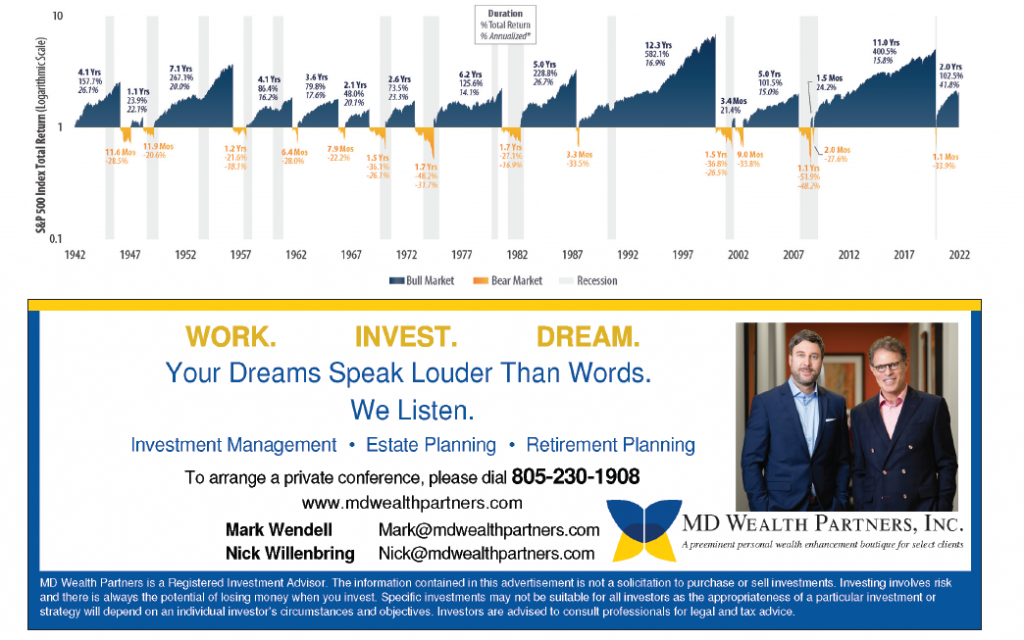Behavioral science tells us current events have a greater impact on our perception and decisions than the past. In 2022, investors are faced with extreme uncertainty given record inflation and recession fears. The stock market is pricing in that uncertainty, causing investors to wonder if this is the start of a long-term trend. Although stocks rise and fall in the short term, they’ve tended to reward investors over longer periods of time. Looking at the history of S&P 500 since 1942, the average bull market lasted 4.4 years with an average cumulative total return of 154.9% while the average bear market (drop of 20% from peak) lasted 11.3 months with an average cumulative loss of -32.1%.
While today’s challenges certainly warrant caution, they don’t have to be a reason to panic, especially when you are focused on long-term investing. Since 1942, markets have experienced numerous challenges, including multiple wars, an oil embargo, asset bubbles, the Great Recession, and a global pandemic. In each of these challenges, companies and people have adapted and responded to get back on track. Investing will always be uncertain. Creating and sticking to a thoughtfully constructed investment plan is critical to avoid making short-sighted decisions. As Warren Buffet said, “The market is the most efficient mechanism anywhere in the world for transferring wealth from impatient people to patient people.”
IMPORTANT INFORMATION
This is for informational purposes only, is not a solicitation, and should not be considered investment, legal, or tax advice. The information in this report has been drawn from sources believed to be reliable but its accuracy is not guaranteed and is subject to change. Investors seeking more information should contact their financial advisor. Investing involves risk, including the possible loss of principal. Past performance does not guarantee future results. Asset allocation cannot eliminate the risk of fluctuating prices and uncertain returns. There is no guarantee that a diversified portfolio will outperform a non-diversified portfolio. No investment strategy, such as asset allocation, can guarantee a profit or protect against loss. Actual client results will vary based on investment selection, timing, market conditions, and tax situation. It is not possible to invest directly in an index. Indexes are unmanaged; do not incur management fees, costs, and expenses; and cannot be invested in directly. Index performance assumes the reinvestment of dividends.
Source: First Trust. Data from 4/29/1942-3/31/2022.
MD Wealth Partners, Inc.: A personal wealth enhancement boutique for select clients. mark@mdwealthpartners.com. mdwealthpartners.com. 805.402.8642. Copyright © Mark Wendell 2022. All rights reserved.




